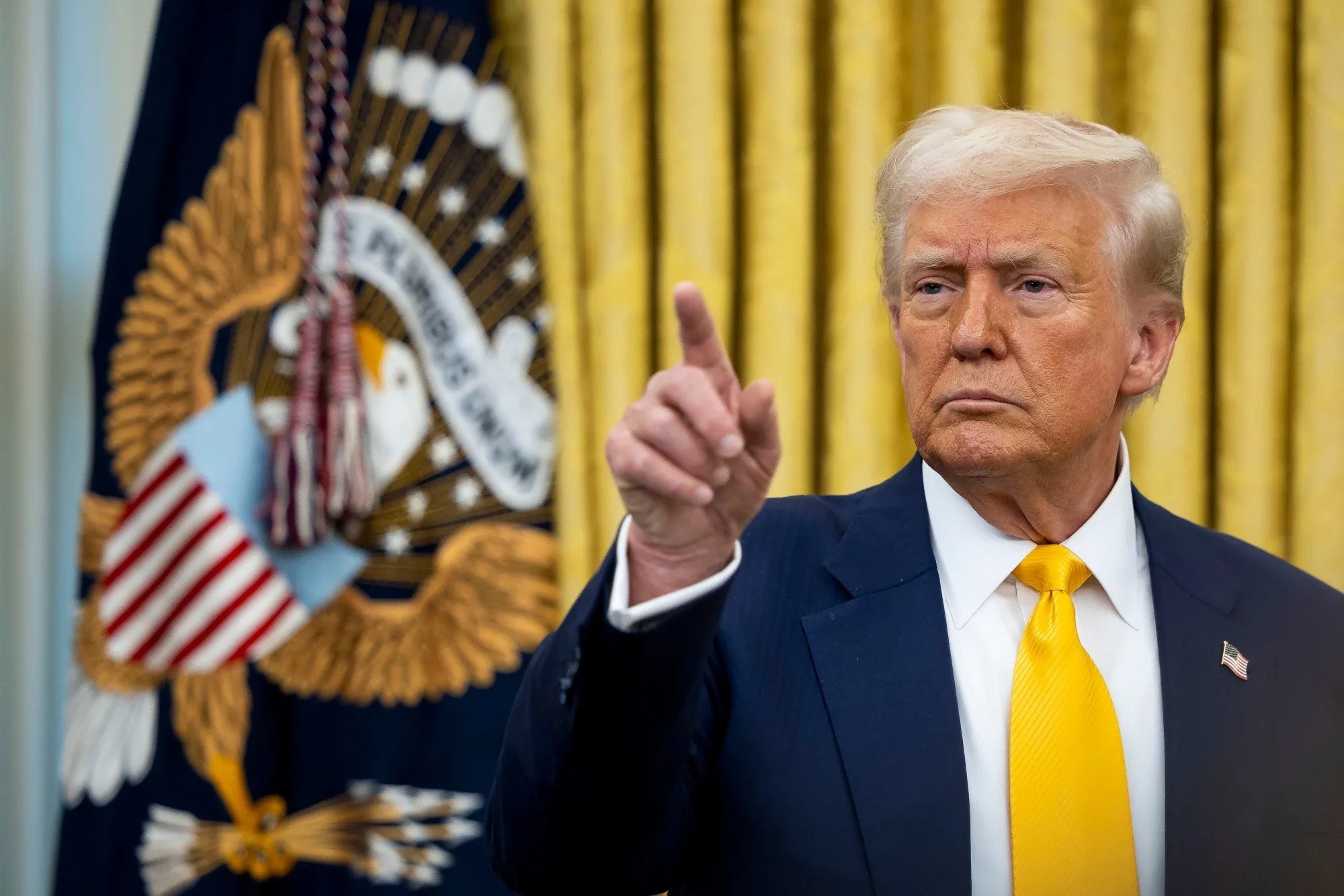Trump's Gold Card Visa Proposal
By Ryan Sandu ‘28
On Tuesday, February 25, President Donald Trump announced an ambitious new immigration proposal. “We’re going to be selling a gold card,” Trump said from the Oval Office. “You have a green card. This is a gold card. We’re going to be putting a price on that card of about $5 million and that’s going to give you green card privileges, plus it’s going to be a route to citizenship. And wealthy people will be coming into our country by buying this card.”
This would give investors the ability to pay $5 million as a pathway to US citizenship, dramatically shifting the route to gaining citizenship for wealthy individuals. This proposal would seek to replace the EB-5 visa in order to attract “very high-level people”. Trump affirmed that the program would not require congressional approval, which raises important legal questions. Does selling a pathway to citizenship for “high-level people” align with U.S. immigration law and equal protection principles? Can the executive branch overhaul an existing visa program?
Why is Trump presenting the Gold Card Visa?
Trump’s proposal reflects his historical approach to governance. He sees the Gold Card Visa as a prime opportunity to use immigration as a way to spur economic growth and attract highly wealthy individuals. At $5 million each, he claims these visas would help the government raise trillions to reduce national debt. The Cato Institute explores the possible benefits of this plan in greater depth, stating that, “implementing a fee could help reduce the federal government’s enormous deficit,” and that it is, “much simpler than designing complicated rules about who qualifies for which visa category,” though at a hefty price for investors.
When asked if wealthy Russians could buy their way into U.S. residency, Trump replied, “Yeah, possibly.” This raises some concerns among those opposed to his plan, who worry that it could open the U.S. to allegedly laundering foreign wealth through immigration. He added, “Hey, I know some Russian oligarchs that are nice people. It’s possible.” This added an extra layer of bipartisan opposition to the issue, going against previous efforts to limit Russian influence.
Is Trump’s Plan Constitutional?
Throughout history, U.S. immigration law has always favored immigrants with high skills, family connections, or exceptional talent, but it has not required financial wealth to be a main factor. Many critics think that Trump’s proposed pathway is fundamentally concerning when put up against the equal protection clauses in the Constitution. Their main concern with this program is that if implemented, it could face numerous lawsuits, arguing that it creates an unequal system for immigrants by giving the wealthy an unfair advantage and paving the road to citizenship.
It will likely be argued that creating a wealth-based barrier to legal citizenship violates either the Fourteenth Amendment’s Equal Protection Clause or the Fifth Amendment’s Due Process Clause. The Equal Protection Clause prohibits laws from unfairly discriminating against certain groups, and has historically been used to challenge policies that create distinctions between individuals. Similarly, the Fifth Amendment’s Due Process Clause ensures that individuals are not deprived of fundamental rights, which includes the opportunity for residency and citizenship.
Critics argue that unlike other programs that allow immigrants to enter the country through education or professional skills, the gold card would prioritize those who can afford the $5 million price tag, disproportionately benefiting the ultra-wealthy. Courts will be asked to decide whether the government has the authority to create a system in which citizenship opportunities will be sold to the highest bidders, while denying similar pathways to those with great contributions but fewer financial resources.
Trump and his supporters would argue in court that immigration policy has always been selective, and that financial investment is an equally valid criterion as skills or family ties. The Immigration and Nationality Act may come into play, which abolished quotas and opened the doors to, "those who can contribute most to this country – to its growth, to its strength, to its spirit." This act grants the executive branch discretion over visa programs, which would provide Trump’s plan with established legal authority if the courts uphold its validity.
The Future of the U.S. Immigration
Should U.S. residency be tied to financial wealth? Does this system violate the principles of fairness under the law? The courts will have a hefty load of questions to answer once this plan takes place, and we can expect the immigration process in the U.S. to continue to change drastically. Regardless of where you may stand, this proposal gives light to the conversation about how the U.S. should value immigrants, and who should be prioritized under the law. Should our policies encourage global investors to boost our economy and minimize our country’s debt, or will it intensify inequality by giving an edge to the wealthy? These are pressing questions that the courts will need to answer as the legal challenges determine the viability of Trump’s proposal. Our president has made it known that he plans for his program to start taking place roughly two weeks from his meeting with the press, meaning we can anticipate the Gold Card to kick off soon.
Ryan Sandu is a freshman majoring in pre-business
Sources
Bier, D. (2025, February 26). Trump’s Gold Card Plan Has Benefits But Legal and Practical Obstacles. The Cato Institute. https://www.cato.org/blog/trumps-gold-card-plan-has-benefits-legal-practical-obstacles
McCreesh, S. (2025, February 25). Trump Plans ‘Gold Card’ Alternative to Green Cards for ‘High Level People’. The New York Times. https://www.nytimes.com/2025/02/25/us/politics/trump-gold-card-immigration.html
Lowenkron, H., Gardner, A. (2025, February 25). Trump to Offer ‘Gold Card’ Visas for $5 Million to the Rich. Bloomberg.
https://www.bloomberg.com/news/articles/2025-02-25/trump-to-launch-gold-card-visa-program-for-wealthy-investors?srnd=undefined
Williams, M., Blackburn, P. (2025, February 25). Trump says US will sell $5 million ‘gold card’ to wealthy foreigners. CNN. https://edition.cnn.com/2025/02/25/politics/us-gold-card-foreigners-trump/index.html
